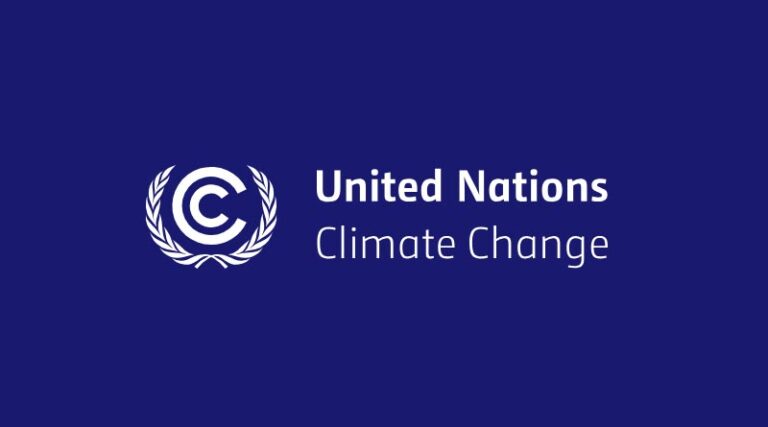
Yearbook of Global Climate Action 2025: Tracking progress and building momentum 10 years after Paris Agreement
12 November 2025, Belém: Climate action by non-Party stakeholders – such as cities, regions, businesses and civil society – is a key driver for the implementation of the first global stocktake (GST) outcome. This is one of the key findings of the 2025 Yearbook of Global Climate Action, published by UN Climate Change today, which also introduces a set of indicators to track future progress.
“This ninth edition demonstrates that the Global Climate Action Agenda has matured from a platform for mobilization into an instrument for implementation,” write UN Climate Change Executive Secretary Simon Stiell in the Yearbook’s foreword. “It provides evidence that systems transformation is underway, and highlights where momentum must now accelerate.”
The 2025 Yearbook comes at a pivotal moment for climate action, 10 years after the adoption of the Paris Agreement, and as we enter a new era which the Executive Secretary has said must focus on bringing the COP process together with the real economy, to accelerate implementation.
This is crucial at all levels, and involving all parts of societies and economies, to “spread the vast benefits of climate action to billions more people,” as he told the Bloomberg Philanthropies & COP30 Local Climate Action Summit in Rio de Janeiro just prior COP30, focused on sub-national climate actions.
The Yearbook also comes as Parties submit their new climate plans (or NDCs), with 95 per cent reporting engagement of non-Party stakeholders (including businesses, investors, sub-national actors and civil society) in NDC implementation.
Following the structure of the COP 30 Climate Action Agenda and its six thematic priorities, aligned with the GST outcome, the 2025 Yearbook looks back at the progress made in climate action since 2015 and in recent years, with data on both individual actors and cooperative climate initiatives (CCIs).
As highlighted in the publication, the number of individual actors engaging in climate action registered through the NAZCA Portal has more than doubled, from around 18,000 in 2020 to over 43,000 in 2025. A major increase in registered CCIs has been recorded in the same period, from 149 to 243 initiatives, demonstrating growing engagement and collaboration in climate action.
The 2025 Yearbook also presents progress on a set of global socio-economic indicators and self-reported initiative-level indicators, proposed to keep track of future advances. These indicators aim to increase implementation, while enhancing transparency and comparability over the years.
They fall under six themes (i) energy, industry and transport; (ii) forests, oceans and biodiversity; (iii) agriculture and food systems; (iv) resilience for cities, infrastructure and water; (v) human and social development; and (vi) cross-cutting enablers and accelerators, including on finance, technology, and capacity building.
The global socio-economic indicators showcase trends from 2015 to the present, highlighting progress and gaps under these themes. Momentum is visible across all axes, with renewable capacity more than doubling and forest finance quadrupling in the past decade, for example. The data also show GHG emissions intensity declining across agricultural practices, disaster mortality numbers halving, and early warning coverage expanding. However, several gaps remain: grid investment is critically low, deforestation figures worsened, and building emissions increased despite efficiency, among other areas in which additional efforts are needed.
The self-reported initiative-level indicators showcase how climate initiatives and coalitions can measure and successfully demonstrate the delivery of concrete results, encouraging greater transparency and supporting the much-needed shift from commitments to implementation. In the Yearbook’s foreword, Climate High-Level Champions, Nigar Arpadarai of the COP 29 Presidency (Azerbaijan) and Dan Ioschpe of the COP 30 Presidency (Brazil) write , “Ten years after Paris, the Agreement will be judged by the changes made in the world: the emissions reduced, ecosystems safeguarded, energy secured, and lives protected. As High-Level Champions, we believe the responsibility is not to renew promises but to carry them through.”
Launched during the first week of COP 30 (taking place from 10-21 November in Belém, Brazil), the Yearbook is published annually by UN Climate Change and provides an overview of the progress, trends and challenges of climate action taken by non-Party stakeholders, to inspire further action and raise ambition.
Also Read: Maharashtra’s Sweet Lime Farmers Hit by 48°C Heat, Drought, and Unpaid Insurance Claims
📢 If You’re in Agriculture, Make Sure the Right People Hear Your Story.
From product launches to strategic announcements, Global Agriculture offers unmatched visibility across international agri-business markets. Connect with us at pr@global-agriculture.com to explore editorial and advertising opportunities that reach the right audience, worldwide.






